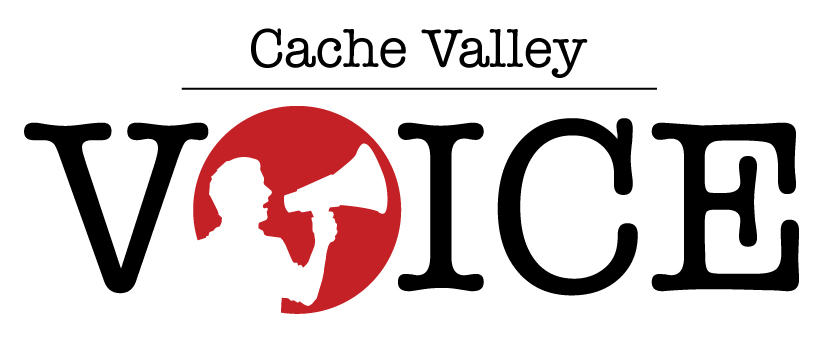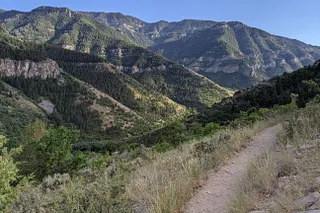Patrick Belmont
June 14, 2025
Damage has been done. The contracts are signed. Unless things fall apart in financing, permitting, or due to other disruptions, Logan residents are now locked into buying electricity from these two fossil fuel power plants—committing nearly $400 million in long-term liabilities, outsourcing control to UAMPS (Utah Associated Municipal Power Systems), and doubling down on the very energy source driving the environmental, social, political, and economic crises we explored in Part 2.
But this story isn’t over.
What matters now is how we respond. What we learn. What we change. And whether we rise to this moment—not just by criticizing what went wrong, but by reimagining what an engaged community, good governance, and visionary leadership can look like.
I know many in our community who identify as conservative, liberal, progressive or apolitical. All of them care deeply about stewardship, honesty, and local investment. This isn’t about political ideology—it’s about the kind of ancestors we choose to be.
Because even though our city leaders made a decision with serious and lasting consequences, Logan still has the people, resources, and capacity to chart a better path. We can’t undo the vote. But we can make sure we never let a decision of this magnitude unfold in the same way again.
When Process Fails, People Pay
What happened in Logan wasn’t just a questionable energy investment. It was a failure of process. And process matters.
Good governance isn’t about always getting it right the first time. It’s about how decisions are made—who is involved, what information is considered, and whether the process reflects our shared values.
This process failed at nearly every stage.
Logan’s own Renewable Energy and Sustainability Advisory Board (RESAB), established to bring expertise and long-term thinking to energy planning, was deliberately left out. The public had almost no opportunity to engage before the first contract was signed. City Council rushed the decision, with no competitive analysis of alternatives, no robust risk assessment, and no evaluation of avoided costs.
Public feedback was overwhelmingly opposed and blatantly ignored. When the public is sidelined, bad decisions get made.
After City Council initially rejected buying into the second power plant in January, I expected them to request RESAB’s help in developing a plan. Instead, they took over our February meeting and spent 75% of our time blathering about our committee’s bylaws—there was no call for help, just politics-as-usual trying to control the narrative.
Perhaps most concerning, Logan’s Light & Power Director, Mark Montgomery, made misleading statements about timelines, negotiations, and the city’s pursuit of renewable options. He told Council there “wasn’t time” to bring RESAB into the loop—despite public records showing he began this process almost a year prior. Mark even came to RESAB’s October meeting and stated that he would update us in our December meeting, which would occur three days after he attempted to get City Council to sign off on both plants, with no off-ramps for nearly 30 years. He manufactured urgency, frequently citing the need to plan for closure of the Hunter coal plant in 2032, even after plans to close that plant had been rescinded. He used a new electricity market planning policy, called EDAM (Extended Day-Ahead Market), to argue the city will face fines if we don’t immediately have a plan to cover our energy needs, even though these plants that won’t even be operational for 4-6 years. Lastly, he claimed in a pivotal City Council meeting that he had been in touch with Fervo Energy—which is building the world’s largest next-gen geothermal plant in central Utah, set to go online in 2026—just “a few months ago” and claimed they just stopped communicating with him. Yet a public records request revealed that he has not had any written communication with Fervo Energy for nearly four years.
From the evidence available, it appears he manufactured urgency, misrepresented efforts to consider alternatives, and dismissed concerns brought up by residents and experts.
This isn’t just frustrating. In my opinion at least, it’s disqualifying.
At what point does omission and bias become outright deception? How much deception is acceptable in Logan City government?
What Good Governance Looks Like
Energy decisions that shape our city for the next 30 years deserve better.
As Vice-Chair of RESAB, I developed Guiding Principles for Long-term Energy Planning, laying out a framework for responsible, transparent, future-focused governance. It includes:
- Competitive analysis of alternatives
No major investment should proceed without a side-by-side comparison of costs, risks, flexibility, and environmental impacts. - Life-cycle cost accounting
Long-term costs—including future fuel price increases, maintenance, carbon penalties, and resilience risks—must be part of the equation. - Public engagement
Major commitments must be made with the community, not behind closed doors. Early, open input—not last-minute approvals. - Adaptability and off-ramps
No energy commitment should lock us into a path that can’t adjust as technology and conditions evolve. - Alignment with our values
Our energy strategy should reflect Logan’s shared values: resilience, stewardship, intergenerational fairness, and fiscal responsibility.
These aren’t radical ideas. They’re the basics of smart, accountable leadership. And they were all violated in this case. We can’t change what’s been done. But we can prevent this from happening again—and insist on accountability from those who broke the public’s trust.
Cities That Are Doing It Right
The claim that Logan had “no better option” doesn’t hold up—not nationally, and not even within Utah.
Ann Arbor, Michigan created a city-run Sustainable Energy Utility to build neighborhood-scale solar, storage, and electrification infrastructure—lowering peak demand, cutting emissions, and enhancing community resilience. They aim to be 100% renewable by 2030.
Burlington, Vermont transitioned to 100% renewable electricity using hydropower, wind, and locally sourced biomass. The city owns its own utility and reinvests in local energy innovation.
Boise, Idaho is planning for 100% clean electricity citywide by 2035 and created a community-wide roadmap to cut fossil fuel use. City leaders emphasize local energy investment as both a climate and economic strategy.
Denton, Texas reached 100% renewable electricity using wind and solar—saving an estimated $500 million over 20 years while maintaining energy independence.
Right here in Utah, cities large and small are stepping up through the Utah Renewable Communities initiative:
- Ogden is implementing a clean energy plan to reach net-100% renewable electricity by 2030.
- Millcreek also committed to net-100% renewable electricity by 2030 and is investing in rooftop solar and neighborhood-scale resilience hubs.
- Grand County is partnering regionally to make net-100% clean power affordable in rural communities.
- Coalville has committed to the same 100% renewables goal—a poignant irony that a city named for coal is now fully committed to moving beyond it.
These aren’t liberal enclaves. They are communities like ours—resourceful, practical, and committed to progress.
So the question isn’t: can it be done?
The question is: why isn’t Logan doing it?
We Don’t Need to Follow. We Can Lead.
It is informative to see other cities forging ahead. And also important to consider that Logan doesn’t need to mimic anyone. We have what we need to lead. Cache Valley is home to engineers, farmers, entrepreneurs, civic leaders, and innovators. We’re a university town with strong civic engagement, a shared ethic of stewardship, and a tradition of solving hard problems. We have our own municipal utility. We have land, talent, and trust. That puts us in a better position than most.
These gas plant contracts are a major setback. But it does not have to define us. We can still build community solar and other renewables. We can still invest in resilience, electrification, efficiency, and smart grid systems. We can still change course. But we need leaders who speak the truth, who invite public input, and who understand that long-term stewardship requires long-term thinking.
You’ve made it to the end of this series. That means you care. So what now? What can you actually do? Start with what’s easily within reach. Be thoughtful about your own energy use. Reduce waste, improve energy efficiency in your home, be mindful of your travel. These actions matter—not because they solve the problem alone, but because they demonstrate who you are, and what you care about.
But let’s be honest: this moment demands more. The energy crisis isn’t just a personal challenge. It’s a systemic one. It will take more than lightbulbs and recycling. It will take action that shifts policy, shifts culture.
So ask yourself: what are your skills, your connections, your superpowers? What can you bring to the table that helps our community rise to this moment? Speak out at public meetings. Organize your neighbors (join us at ourcommunitycachevalley.org). Support candidates who tell the truth. Push for transparency. Help build something better.
Rosa Parks didn’t change the world by herself. She made one clear decision: to refuse complicity with a broken system. The rest followed. What will you refuse? And what will you create in its place?
What Comes Next
For the Mayor and City Council, it’s one thing to have made a mistake, an egregious one in this case. But the real shame is in refusing to reflect and adapt. If City Council is serious about resilience and fiscal responsibility, they must:
- Acknowledge how this decision was made, where the process failed, and provide a rationale for their decision
- Hold a public hearing on the accuracy of Logan Light and Power leadership’s claims
- Make a determination about whether Mark Montgomery is still fit to serve, based not just on technical knowledge of the energy sector, but also on ethical grounds
- Create binding guidelines for energy decisions going forward
- Restore public trust and oversight through an empowered, independent energy committee
And then, we begin again—with humility, with courage, and with a vision worthy of the people who live here. Because this isn’t just about energy. It’s about integrity.
The real question isn’t whether we’ll have power in 2040. We will.
The question is whether Logan will be a city that clings to the past out of fear—or steps forward with faith in its people, its values, and the future we still have time to build.


